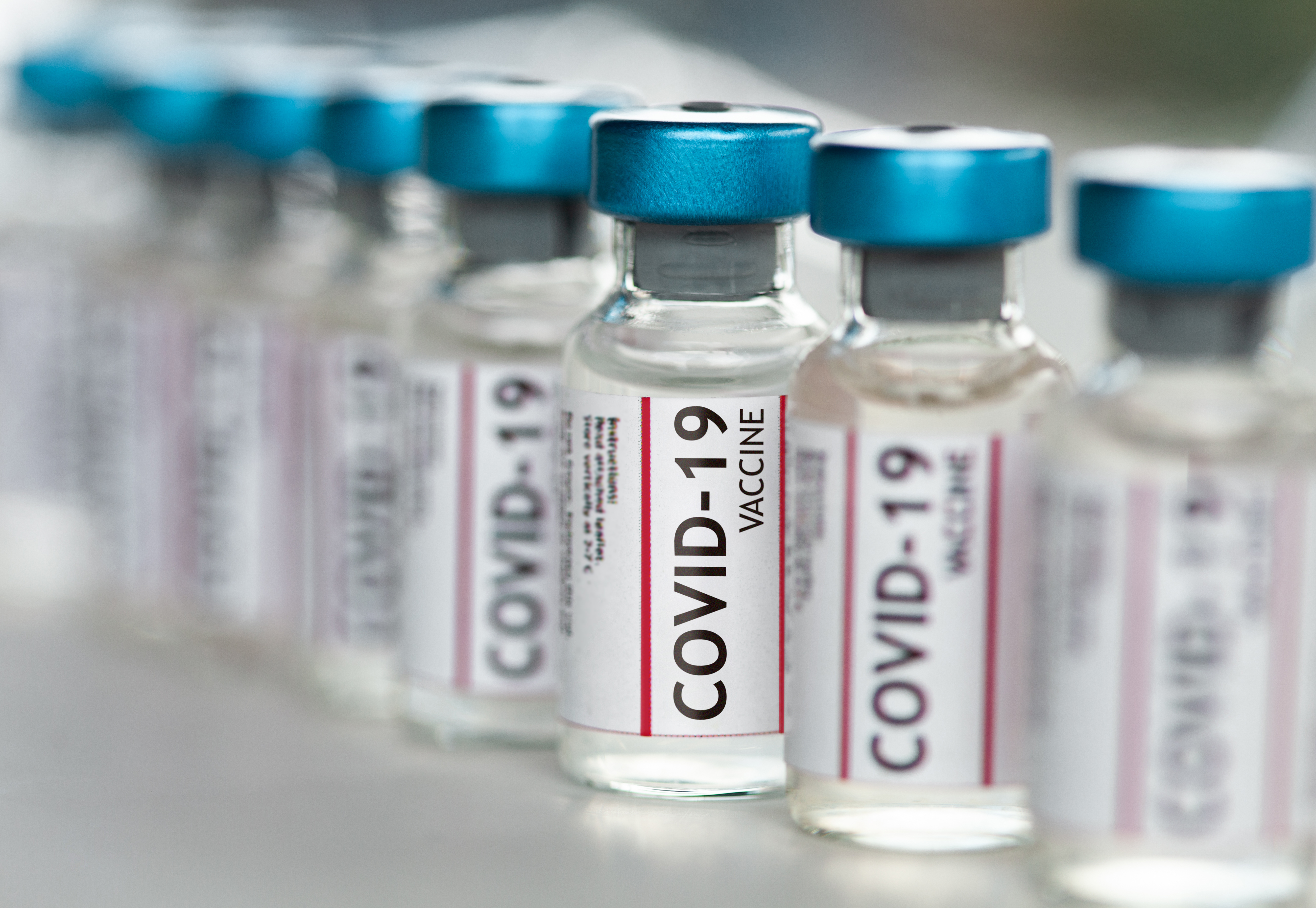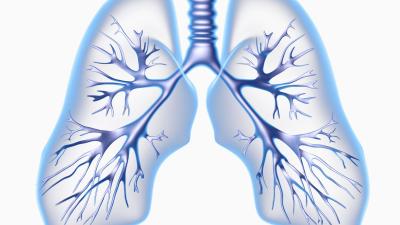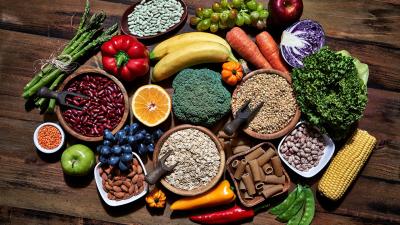COVID-19 Vaccines: Safety and Efficacy

Vaccines against COVID-19 have been developed at an unprecedented pace. In pharmacies and vaccine centers, they are now being administered as fast as the public health wheels can turn.
Do they work? Are they safe? Do they involve animal testing or animal ingredients? We’ll tackle all of these questions.
Do They Work?
In human trials, the Pfizer vaccine was compared to a placebo in 43,448 people. During the study, 170 participants developed COVID-19. When the study blind was broken, it was revealed that 162 of these people had received the placebo. Only eight were in the vaccine group. Of 10 severe COVID-19 cases, nine were in the placebo group, and one had received the vaccine.1 The Moderna vaccine is similarly effective. In 28,207 participants, there were 185 cases of COVID-19 in the placebo group and 11 cases in the vaccine group. Of 30 severe cases, all were in the placebo group.2 These figures show an effectiveness of over 90%. The one-shot Janssen vaccine, released by Johnson & Johnson, was reported to have an overall efficacy of 66%, although its ability to prevent severe cases appears to be much higher.3 Some have speculated that the lower apparent efficacy of the Janssen vaccine may be due to the arrival of variant coronaviruses that pose challenges for all current vaccines.
The Pfizer vaccine is fragile. It must be shipped and stored between −80 and −60 °C. When vaccines are not stored properly, they can lose their effectiveness. The Moderna vaccine can be kept at more moderate temperatures but must still be shipped and stored correctly in order to work. The Janssen vaccine is stored with normal refrigeration.
The greatest unknown, however, is how long immunity may last, particularly in the face of a mutating virus. We do not yet know whether the coronavirus vaccines will provide long-lasting protection like the Salk polio vaccine or will lose its efficacy in a matter of months, like influenza vaccines. So far evidence suggests sustained immunity, but only time will tell.
Are They Safe?
Short-term side effects of the Pfizer, Moderna, and Janssen vaccines have been minimal—fatigue, headache, and muscle aches. Rarely, allergies have occurred, typically in people with multiple previous allergies.
Even so, all pharmaceuticals have risks, and they merit close monitoring. While the Salk polio vaccination has been shown to be extremely safe, the live attenuated (Sabin) vaccine can actually cause paralytic polio—about three cases of polio per million people vaccinated. The problem is that the live virus used in the vaccine can revert back to a disease-causing state, leading to polio, not in vaccinated individuals but in others to whom they pass the virus. In 1976, the swine flu vaccine caused cases of Guillain-Barré syndrome, a condition of weakness caused by an autoimmune reaction to the vaccine. The syndrome is fatal in about 5% of cases and disabling in others. There were 362 cases during the first six weeks of the vaccination program, leading to its discontinuation. Concerns about COVID-19 vaccines have been fueled by the rush to create a workable vaccine.
The COVID-19 vaccines use methods that are far different from those used for polio or swine flu, and evidence so far suggests that serious long-term side effects are extremely unlikely.
Are Vaccines Animal-Tested?
Vaccine development usually involves years of testing, often on animals, before an investigational vaccine enters human trials. The urgency of finding a COVID-19 vaccine allowed manufacturers to move into human trials with somewhat less animal testing than would otherwise have been required. However, government regulations will not allow vaccines to be administered to humans without animal testing. The Food and Drug Administration granted Emergency Use Authorizations for Pfizer and Moderna based on safety and efficacy information obtained in studies using mice, rats, hamsters, and monkeys, as well as information from human clinical trials. Given the regulations and policies that mandate animal tests, forthcoming COVID-19 vaccines will be tested on animals as well.
In addition, all batches of injectable drugs, including vaccines, are tested for pyrogenicity, that is, their tendency to cause fever as a result of bacterial contamination. Historically, such testing was conducted on rabbits. In 1977, the FDA approved a new test using the blood of horseshoe crabs (limulus), taking advantage of the fact that the crabs produce a protein that causes their blood to clot on contact with bacterial endotoxins. The test proved faster and cheaper than rabbit tests, and some argued it was more humane. The crabs are taken from the sea, bled, and, in theory, returned to the sea. The test is nonetheless traumatic and as many as 30% of the animals do not survive.4
A newer method, called the recombinant factor C assay, uses proteins like those from crabs but produced in the laboratory.5 It appears to be as accurate as the crab-based test, with fewer false positives. A second test, the monocyte activation test, is based on human blood cells. Unfortunately, in contrast with the “warp speed” of vaccine development, regulatory acceptance of the newer pyrogenicity tests has been at a horse-and-buggy pace. Vaccine manufacturers so far have not revealed their pyrogenicity testing practices, and continued use of the horseshoe crab test is likely. The Physicians Committee is working directly with regulatory agencies to ensure that all batches of injectable drugs and vaccines, including those against COVID-19, are tested without horseshoe crab blood.
Do Vaccines Contain Animal Ingredients?
The Pfizer, Moderna, and Janssen vaccines are free of animal-derived ingredients, in contrast to many other vaccines that include shark squalene, gelatin, cholesterol, egg, and milk. Pfizer has reported that its vaccine used a cow’s milk component in the manufacturing process, but the vaccine does not contain this ingredient.
Other vaccines are in late-stage clinical trials, all of which are produced by cells grown in a laboratory using animal products, although animal products are not in the final vaccines themselves. Complete ingredient lists for forthcoming vaccine candidates are not likely to be made public until Emergency Use Authorizations are submitted. Fortunately, synthetic versions of most animal-derived ingredients are readily available. The Physicians Committee continues to work with the federal government and pharmaceutical companies to promote use of these nonanimal ingredients and for other critical changes to advance science and save human and animal lives. More information about vaccine ingredients is available on the CDC’s website.
What is the Physicians Committee’s Policy?
In addition to working to improve testing policies as described above and our many programs highlighting the role of nutrition in the diseases that aggravate COVID-19 mortality, the Physicians Committee and the Barnard Medical Center have internal policies for disease prevention. In addition to requiring the use of masks, social distancing, and good hygiene, we also mandate COVID-19 vaccination for all clinic and research staffers who have contact of any sort with patients or research participants.
Vaccines do have risks. On the other hand, the risks so far appear minimal, while COVID-19 deaths are very real and climbing. The older we or our families are, the worse the odds. Unlike a diet-related disease that is largely unaffected by an occasional lapse in caution, coronaviruses take advantage of any gap they can find.
Most of all, we will retain our outward focus to try to change human behavior. It was almost certainly the cruel exploitation of animals—in farms or live markets—that brought the coronavirus into human populations, and slaughterhouses were among the worst hot spots spreading the virus. The virus is likely to mutate in live markets and fur farms, while the meat and dairy industries fuel the epidemics of obesity, diabetes, and other diet-related diseases that make COVID-19 a killer.
References
- Polack FP, Thomas SJ, Kitchin N, et al. Safety and efficacy of the BNT162b2 mRNA Covid-19 vaccine. N Engl J Med. 2020;383(27):2603-2615. doi: 10.1056/NEJMoa2034577
- U.S. Food and Drug Administration. FDA Takes Additional Action in Fight Against COVID-19 By Issuing Emergency Use Authorization for Second COVID-19 Vaccine. Accessed March 31, 2021. https://www.fda.gov/news-events/press-announcements/fda-takes-additional-action-fight-against-covid-19-issuing-emergency-use-authorization-second-covid.
- Centers for Disease Control and Prevention. Information About Johnson & Johnson’s Janssen COVID-19 Vaccine. Updated March 30, 2021. Accessed March 31, 2021. https://www.cdc.gov/coronavirus/2019-ncov/vaccines/different-vaccines/janssen.html.
- Leschen AS, Correia SJ. Mortality in female horseshoe crabs (Limulus polyphemus) from biomedical bleeding and handling: implications for fisheries management. Marine and Freshwater Behaviour and Physiology. 2010;43(2):135-147. doi: 10.1080/10236241003786873
- Maloney T, Phelan R, Simmons N. Saving the horseshoe crab: A synthetic alternative to horseshoe crab blood for endotoxin detection. PLoS Biol. 2018;16(10):e2006607. doi: 10.1371/journal.pbio.2006607








